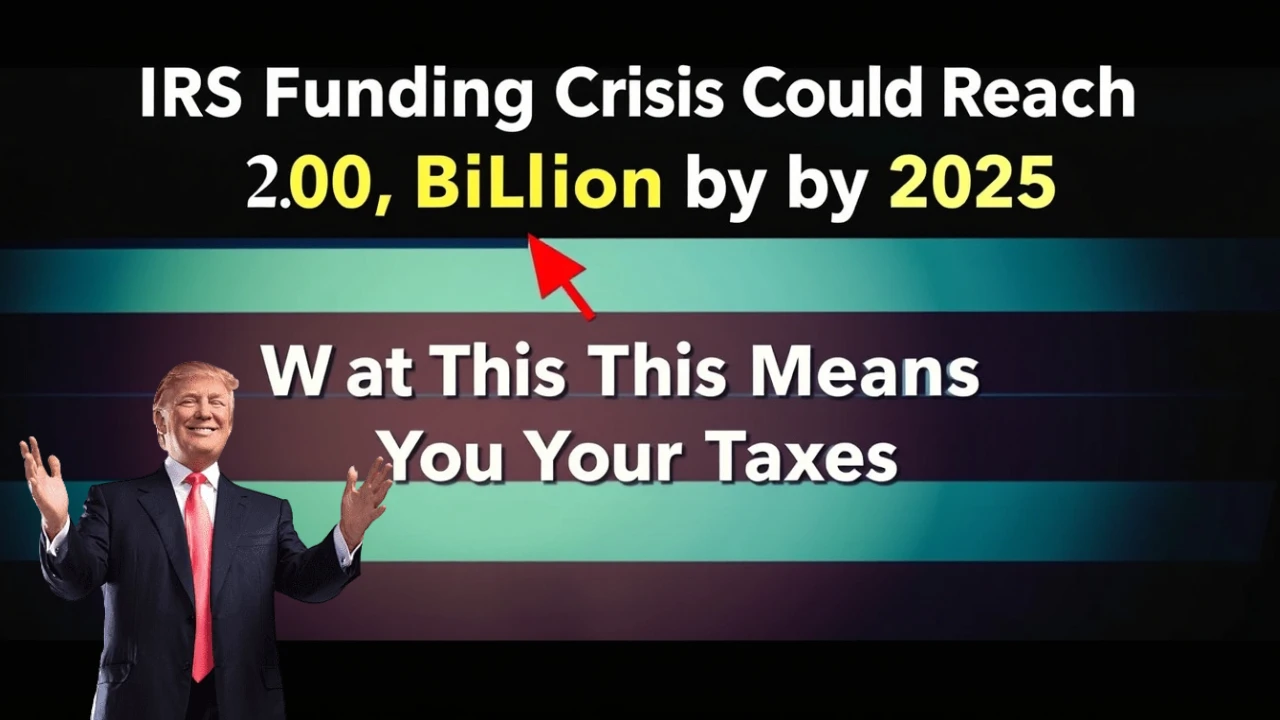The IRS is grappling with a significant funding crisis that could lead to a shortfall of up to $20 billion by 2025. This shortage could severely impact millions of taxpayers across the United States, potentially delaying tax refunds, reducing the frequency of audits, and challenging customer service capabilities. Whether you are an individual taxpayer or a business owner, it’s crucial to understand the potential effects of this funding gap and take proactive measures to stay compliant.
Why the IRS Is Struggling Financially
The IRS’s financial struggles stem from a variety of factors, including years of budget cuts, an increased workload due to tax law changes and pandemic relief efforts, and outdated technology. While funding from initiatives like the Inflation Reduction Act temporarily alleviated some pressure, recent legislative decisions have reduced allocations, leaving the agency facing a severe budget deficit.
Key Contributing Factors:
- Budget Cuts: Over the past decade, Congress has consistently reduced the IRS’s budget, straining its ability to carry out its functions.
- Increased Responsibilities: Programs like COVID-19 relief and expanded tax credits have added significant responsibilities, further stretching the agency’s resources.
- Aging Technology: Outdated systems slow down processing times, making it harder for the IRS to keep up with its workload.
- Staff Shortages: A reduction in IRS personnel has led to slower response times and less effective enforcement.
- Complex Tax Code: As the tax code becomes more complicated, the IRS needs more resources to manage enforcement and offer guidance.
How the IRS Funding Shortfall Will Affect You
If the IRS continues to face financial difficulties, taxpayers could experience the following issues:
सम्बंधित ख़बरें
- Delayed Refunds With fewer staff and outdated systems, tax refunds could take longer to process. In 2022, the IRS processed around 260 million returns, and delays could significantly affect individuals’ and businesses’ financial planning. What You Can Do:
- File early to avoid potential backlogs.
- Use electronic filing for faster processing.
- Regularly check the status of your refund online.
- Double-check your tax return for accuracy to minimize delays.
- Fewer Audits and Reduced Enforcement The IRS may perform fewer audits due to its limited resources. The agency expects to conduct approximately 6,000 fewer audits of high-income earners and corporations. Key Concern:
- Tax evasion could increase, potentially putting a higher burden on compliant taxpayers.
- Smaller businesses might face less oversight, which could lead to underreporting of taxes.
- Customer Service Challenges With fewer agents available, expect longer wait times and slower responses to inquiries. This could create frustrations for taxpayers trying to resolve issues. What You Can Do:
- Use the IRS’s online tools for self-service options.
- Keep your documentation organized to avoid delays.
- Consult a tax professional for assistance with complex issues.
- Delays in Tax Credit Processing Taxpayers relying on credits like the Earned Income Tax Credit (EITC) and Child Tax Credit (CTC) might experience delays in verification and access to these benefits. What You Can Do:
- Ensure you have accurate documentation for faster verification.
- Stay updated on eligibility requirements to avoid mistakes in your claims.
Steps You Can Take to Protect Yourself
While the IRS works to address its funding issues, there are steps you can take to ensure a smoother tax filing experience:
- Stay Informed About Policy Changes Follow trusted sources like the IRS’s official newsroom and reputable financial news sites to stay on top of changes to tax laws and filing deadlines.
- Organize Your Financial Records Keep your tax records accurate and well-organized to minimize errors. Tax software or a professional advisor can help streamline the process.
- Explore Tax Relief Options If you owe back taxes, consider utilizing IRS payment plans or relief programs to avoid additional penalties and interest.
- Beware of Scams Tax season can bring out fraudsters. Always verify any communication from the IRS and avoid sharing personal information over email or the phone.
- Seek Professional Help If you’re unsure about your tax situation, consulting a tax professional can ensure compliance and help you avoid costly mistakes.
Common Questions About the IRS Funding Crisis
- Will my tax refund be delayed? Yes, delays are possible, especially for paper returns. To speed up the process, file electronically.
- How can I track my refund? Use the “Where’s My Refund?” tool on the IRS website for real-time updates.
- Will the IRS conduct fewer audits? Yes, the IRS is expected to reduce audits, particularly for high-income individuals and large corporations.
- What should businesses do to stay compliant? Businesses should maintain accurate records, file on time, and seek professional advice if needed.
- How can I reduce my tax liability amid delays? Maximize your deductions, credits, and contributions to tax-advantaged accounts like IRAs to lower your overall liability.
Staying informed and organized is key to navigating the upcoming challenges posed by the IRS’s funding crisis.



